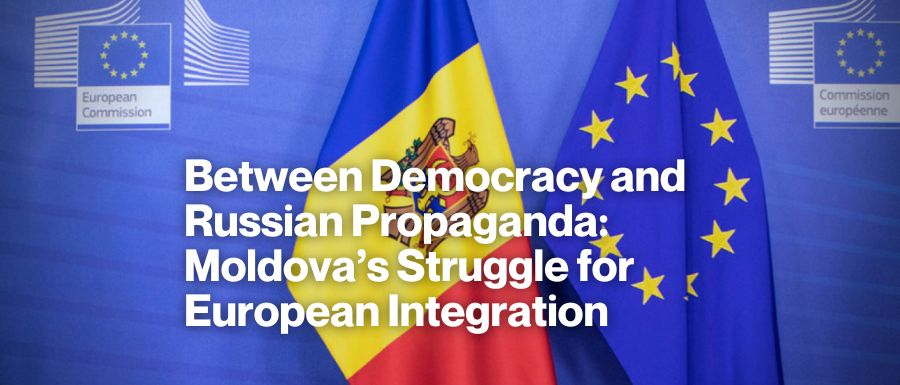In recent years, Moldova has actively pursued European integration, making remarkable progress in aligning its politics and society with EU values. This journey has been driven not only by the Moldovan government and civil society, but also supported by the European Union (EU) and its member states through various EU-funded projects. These initiatives have promoted democratic governance, transparency and accountability throughout the country, strengthening both local and central institutions. One of the key actors in this mission, ALDA – European Association for Local Democracy, has been deeply involved in strengthening Moldovan institutions and fostering a pro-European spirit among the Moldovan public.
However, Moldova’s aspirations have been complicated by geopolitical challenges. The ongoing war in Ukraine has put Moldova under immense pressure, particularly from Russian-backed disinformation campaigns aimed at undermining Moldova’s European ambitions. Russian propaganda has long been influential in the country, and recent events have highlighted its ability to sway public opinion, complicating the national dialogue on Moldova’s future.
On October 20, 2024, Moldovan citizens faced a pivotal moment with both the presidential election and a national constitutional referendum on amending the Constitution to enable EU accession. This election season has tested Moldova’s resilience, offering both a chance to demonstrate its democratic maturity and a gauge of the Russian influence that has intensified in recent years. For the first time, Moldova introduced mail-in voting as an alternative to in-person ballots, ensuring that citizens abroad and in remote areas could participate actively in shaping the country’s future.
This election drew a historic turnout, with 51.68% of registered voters casting their ballots.
According to data from the Central Electoral Commission, 1.562.705 million Moldovans participated in this election. The diaspora, particularly those in Canada, the United States, and Sweden, showed strong engagement, with 1,344 citizens voting by mail, while over 240,548 voters cast their ballots at overseas voting stations. Furthermore, 16,131 Moldovans from the Transnistria region also participated, underscoring the importance of this referendum in all parts of the country.
The referendum asked, “Do you support amending the Constitution to allow Moldova to join the European Union?” saw 1.488.874 voters, representing 49.81% of registered voters. The results revealed a divided electorate, with a slim majority of 50.38% (739.155 voters) voting “Yes.” This outcome, while in favour of EU accession, highlighted the influence of Russian propaganda, which framed EU integration as a threat to Moldova’s economy, culture, and sovereignty.
These confirmed results, as well as the incidents and irregularities during the elections, have been transmitted by the Central Electoral Commission to the Constitutional Court for validation.
Yet, Moldova’s journey towards European integration is far from over. On November 3, 2024, Moldova faces another crucial decision with the presidential runoff, a vote that will determine the nation’s leadership and commitment to continuing the EU accession process.
Amid these challenges, ALDA and other organisations dedicated to European integration continue their support for Moldova.
They are working to counter misinformation, foster understanding of the benefits of EU integration, and demonstrate that European values mean improved living standards, freedom of expression, human rights protections, fair justice, and greater citizen involvement in governance. For Moldova, this is not just a political choice but a fundamental transformation toward a future of peace, prosperity, and alignment with the European community.
